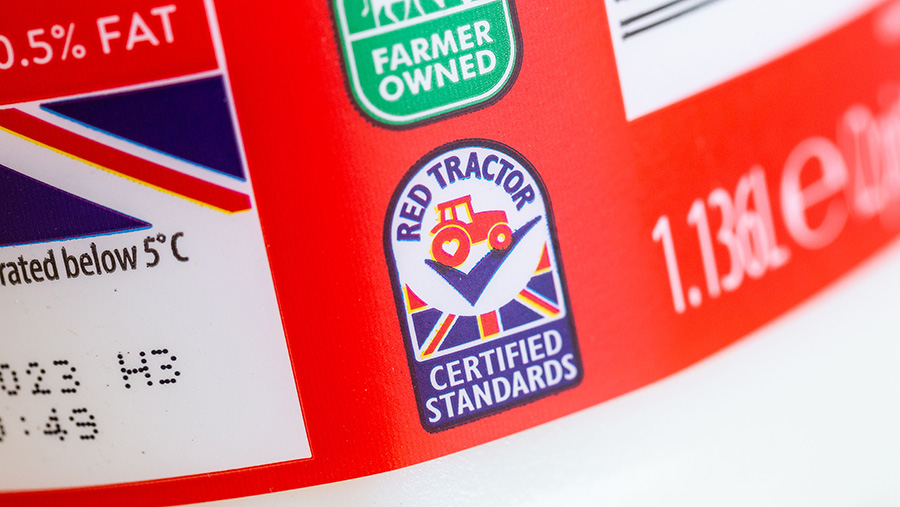Red Tractor’s new Green Farm Commitment scheme stirs debate
 © Red Tractor
© Red Tractor Red Tractor has announced plans to introduce an environment module as a voluntary “optional add-on” to its existing farm assurance schemes.
The UK’s largest farm assurance scheme is planning to launch its Greener Farms Commitment (GFC) in April 2024.
The aim is to provide further assurance and, potentially, data from farms on environmental performance, to help retailers as they report against supply chain commitments on nature and biodiversity.
See also: Red Tractor – the pros and cons of farm assurance schemes
The GFC would cover farmers’ actions on water, nutrient management, waste, biodiversity and soil management.
But the plans have divided opinion in the UK farming industry, meeting fierce criticism from some farmers who believe Red Tractor is becoming overbearing.
Assured Food Standards (AFS), the organisation which manages and promotes the Red Tractor food chain assurance scheme, considered the GFC module at its board meeting on 29 September.
Following detailed discussions, the board agreed to make the GFC module available across all sectors from 1 April 2024.
It agreed to the establishment of a development advisory panel (DAP), which will advise on the immediate and future technical development of the GFC.
The board also agreed that the sector boards and technical advisory committees should be given an opportunity to provide their technical feedback on the content and operational plans.
NFU ‘not involved’
NFU deputy president Tom Bradshaw said on the social media platform X: “The NFU have not been involved with the development of the bolt-on module.”
Farmers Weekly has seen a draft copy of the Red Tractor GFC module (see panel).
Commenting on the plans, one farmer said: “Red Tractor seems to be like an animal that has grown from nothing and is now like a monster, and the retailers are using it as a way to meet the particular requirements they are facing.
“It seems like the retailers have taken Red Tractor to one side and said, ‘This is what we want and farmers will deliver it’.
“Meanwhile, the same retailers who said they wanted to control food inflation are not prepared to pay a fair price to British farmers for the food they are producing to meet their costs, with some preferring to import cheap foods, as happened recently with Italian eggs.”
Red Tractor chief executive Jim Moseley said many major retailers support its GFC and it was designed to protect farmers from future audit demands, costs and complexity.
“For processors and packers, the common industry approach should reduce the need for a multitude of product lines to be segregated, which could be substantial if customers start to develop their own bespoke programmes,” he added.
“For retailers, out-of-home operators and brands, the GFC provides the evidence they need to show that their sourcing strategies are from farmers committed to looking after the environment.”
Common industry approach will be ‘voluntary bolt-on’
Red Tractor’s plans for a Greener Farms Commitment (GFC) will be voluntary and added to the core standards of its farm assurance schemes, according to draft plans for the additional environment module.
A draft document outlining the plans explains that climate change is “at the centre of some of the fiercest public debates, not least in food… from what we eat, how food is produced and information on packaging”.
It says retailers, caterers, meat processers, brands and trade associations have approached Red Tractor to develop “a modular approach to provide farmers with an easy and cost-effective solution to meet growing requirements”.
This “common industry approach” will be voluntary and bolted on to the Red Tractor core standards to:
- Reduce the specific end-customer demands on farmers
- Deliver even greater market access for farmer members with minimal impact on the audit burden
- Help UK agriculture deliver on its commitment to a greener approach
- Support the meat and livestock sectors by demonstrating their environmental credentials
- Allow farmers to be appropriately rewarded for their commitment and actions to deliver a greener future.
